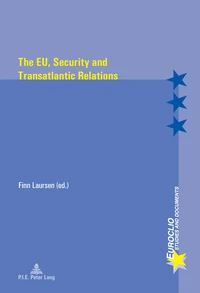The EU has become an important international actor. Its internal policies often have repercussions far beyond its borders. It is also increasingly becoming a proactive global actor, defending its interests and projecting its norms and values in both bilateral and multilateral external relations. This volume has a special focus on external economic relations and includes chapters on the Euro, trade policy, and competition policy as well as on specific bilateral relationships.
The section on relations with industrialized countries deals with the United States, Canada, Russia, Japan and China, while the section on relations with developing countries has chapters on administrative reform, environmental cooperation, Cuba, Central America and Iran. The book thus gives an up-to-date overview of important aspects of the EU's external relations. With a focus on political economy, it traces the continuous interplay of economics and politics that has characterized the EU's development of a fully-fledged foreign policy.
What emerges is a picture of a European Union that is better equipped institutionally to deal with economic, rather than political issues.
The EU has become an important international actor. Its internal policies often have repercussions far beyond its borders. It is also increasingly becoming a proactive global actor, defending its interests and projecting its norms and values in both bilateral and multilateral external relations. This volume has a special focus on external economic relations and includes chapters on the Euro, trade policy, and competition policy as well as on specific bilateral relationships.
The section on relations with industrialized countries deals with the United States, Canada, Russia, Japan and China, while the section on relations with developing countries has chapters on administrative reform, environmental cooperation, Cuba, Central America and Iran. The book thus gives an up-to-date overview of important aspects of the EU's external relations. With a focus on political economy, it traces the continuous interplay of economics and politics that has characterized the EU's development of a fully-fledged foreign policy.
What emerges is a picture of a European Union that is better equipped institutionally to deal with economic, rather than political issues.
